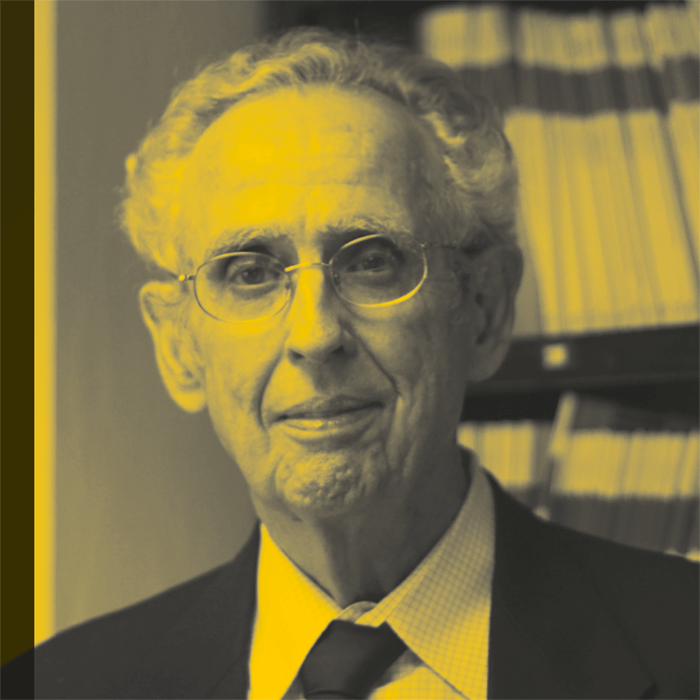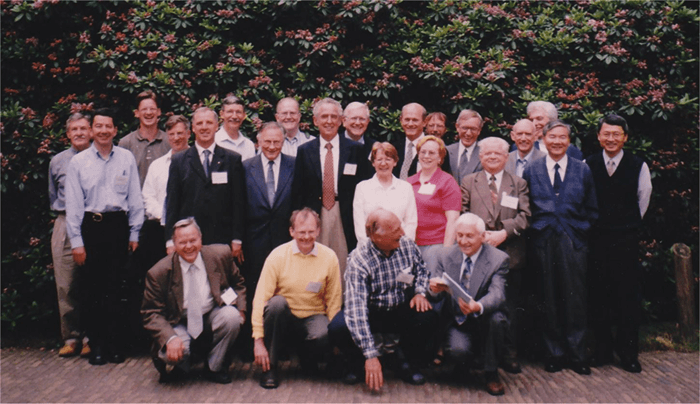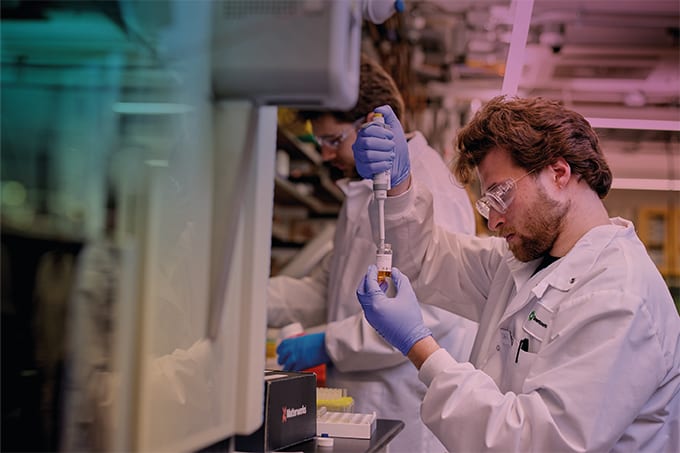
I was very saddened to learn of the passing of Lloyd Snyder, a true giant in the field of chromatography – and one whose contributions have been truly seminal. I knew Lloyd for 50 years; in the late 1960s and early 1970s we collaborated on multiple projects, including co-authoring the textbook “An Introduction to Separation Science” with Csaba Horváth. In the early 1980s, when Lloyd was at Technicon, we developed a high-throughput LC clinical assay technology – boxcar chromatography. John Dolan was a postdoc in my lab at that time, and he went to work for Lloyd at Technicon. The rest is history.
The field of HPLC would not be where it is today without Lloyd’s contributions. With Jack Kirkland, he is well known to several generations of separation scientists as the author of the essential textbook “Introduction to Modern Liquid Chromatography” and organizer of ACS courses. Lloyd was co-author of a number of other books, all with a focus on translating chromatographic fundamentals to practice. From his earliest days at Union Oil to LC Resources in the 2000s, Lloyd was a builder of models, taking fundamental concepts and generating practical approaches to aid analysts in optimizing separations. His contributions included, among many:
- Retention in liquid-solid chromatography
- Classification of mobile phases and solvent selectivity
- Linear solvent strength gradient elution theory
- Column selectivity via hydrophobic subtraction theory.
On a personal level, Lloyd was someone with unbelievable energy and focus. His productivity was impressive, his impact great. He collaborated widely in the field, even to the end of his days. Everyone enjoyed interacting with him, as he was invariably kind and made sure his collaborators shared in his success. He was a unique scientist who will be sorely missed. In the “Hall of Fame of Chromatography,” Lloyd Snyder will be considered one of the major figures.
Lloyd came to chromatography early in his professional life, and his achievements in the field are many and varied. He made major contributions in normal phase liquid chromatography (NPLC), the compositional analysis of petroleum, the theory of retention in adsorption chromatography, and the development of high-performance liquid chromatography (HPLC).
In 1970, Lloyd was invited to join the editorial board of the Journal of Chromatography and in 1987 became the Editor of the journal – a position he held up until 2000. Lloyd was known as an editor with strong opinions, and if he agreed to accept a paper, it was a great honor for the author(s). Lloyd will also be remembered by the chromatography community for his contributions to several major textbooks and hundreds of scientific papers.
I first met Lloyd in the summer of 1976 through my then-supervisor, Csaba Horváth, at Yale. I returned to Berlin, Germany in 1977, and founded my private research institute a few years later. It was Csaba who saw the potential in a collaboration between me and Lloyd. Based on Csaba’s suggestion, I invited Lloyd to join me to teach reversed phase HPLC courses in Berlin. After teaching several such courses together, we eventually started to develop software to support our classes. Lloyd suggested the name for the software – DryLab – based on his early experience with chemistry kits. As a child, he once caused a (small) explosion in his parents’ cellar while trying to achieve a chemical reaction. He said that this always reminded him of the importance of working out experiments on paper beforehand – so DryLab struck him as an apt name.
Although in those days computers were not taken very seriously, we thought that it could be a business opportunity for the future. In 1983, Lloyd formed a new business, called “LC Resources Inc,” with John Dolan – a former postdoc from Barry Karger’s lab in Boston – and Tom Jupille as partners. I was the European partner, and at first had a hard time explaining the concept. Nobody believed that something like this could be successful. However, Novartis in Basel saw the potential of DryLab early on, other companies like Pfizer, Sanofi and others followed, and we started to get more and more interest.
We felt we were generating something innovative and unique – something revolutionary. We fixed thousands of bugs and were proud of the precision of our predictions. In 2006, DryLab was transferred to the Molnár Institute and has continued to develop.
The work of Lloyd Snyder will long outlive him. His excellence in teaching HPLC and his contributions to the theory of chromatography, especially in gradient elution, will influence young chromatographers for years to come. In addition, DryLab is now used in almost every pharmaceutical company, plus at the FDA and other regulatory agencies, so Lloyd’s work will continue to support the vital work of drug discovery.
Lloyd Snyder was a true friend, and a wonderful human being. He always sought out relevant scientific questions, answered quickly, and drove science forward with great enthusiasm. We in the scientific community will all miss him very much. Bless you, Lloyd, for all you did for us.
The list of professional honors for Lloyd Snyder shows the scientific community’s appreciation for his extraordinary work:
- American Chemical Society Award in Petroleum Chemistry
- Steven Del Nogare Memorial Award in Chromatography, Delaware Valley Chromatography Forum (1976)
- Biography in “75 Years of Chromatography – A Historical Dialogue,” Elsevier (1979)
- Chromatography Memorial Medal, Scientific Council of the Academy of Sciences of the USSR (1980)
- American Chemical Society Award in Chromatography (1984) Pittsburgh Society Award in Analytical Chemistry (1984)
- LS Palmer Award in Chromatography, Minnesota Chromatography Forum (1985)
- IP Martin Award, the Chromatography Society (Europe) (1989)
- Northeast Regional Chromatography Discussion Group National Chromatography Award (1991)
- Journal of Chromatography, 60th Birthday Honor Volume; Vol. 550 (1991)
- American Chemical Society Orange County Section “Service Through Chemistry” Award (1993)
- Eastern Analytical Symposium Award in Separation Science (1994)
- Recognition of five “HPLC pioneers”; HPLC 1995 in Innsbruck, as reported in J Chromatogr A, 703 (1995).
- James L Waters Sixth Annual Symposium recognizing four Pioneers In the Development of Analytical Instrumentation (High Performance Liquid Chromatography); organized by the Society for Analytical Chemists of Pittsburgh (1995)
- California Separation Science Society Award for Distinguished Contributions in Separation Science (1996)
- Anachem Award (Association of Analytical Chemists) (1998)
- Memorial Medal of the Medical University of Gdansk (2001)
- Biography in Chromatography – A Century of Discovery, 1900-2000, Elsevier (2002)
- Csaba Horváth Medal, Connecticut Separation Science Council (2005)
- Chicago Chromatography Discussion Group Merit Award (2005)
- Waksmundzki Medal of the Polish Analytical Society (2005)
- Member, Honorary Editorial Board of the Journal of Chromatography A (2009)
- Lifetime Achievement in Chromatography Award, LCGC North America (2012)
Lloyd’s (typically modest) response to this list?
“I very much appreciated each of the above ‘prizes.’ But sometimes I wonder, were these acknowledgements for good work, merely the appearance of good work, or mainly a popularity contest? In any case, the number of awards seems out of all proportion to what was actually accomplished.”

I met Lloyd Snyder for the first time in September 1977 at the HPLC meeting in Salzburg, Austria. It was my first month as a PhD student and my first international conference. It was also the first time that posters were featured at the conference.
My poster focused on gradient elution and Lloyd Snyder spent almost the entire poster session in my room, asking questions (and more questions, and then more questions) about all my graphs and equations. He was into every detail and he made the young student in front of him think and explain. At that moment – and from that moment on – he helped me tremendously. My impression of Lloyd from that first day proved to be very true to who he was: absorbed by his scientific studies and able to concentrate on every detail, without losing track of its place in the bigger picture.
In the years that followed, Lloyd and I communicated the old-fashioned way, through long letters – what is now called “snail mail.” Our first instance of electronic communication came more than 10 years later, when it turned out that Lloyd and I had the same calculators that could read and write little magnetic strips. I sent Lloyd a strip containing a primitive gradient-scanning program, which constituted great 20th century progress.
Lloyd and I kept communicating about our research, but we also developed another relationship. Lloyd was an editor of the Journal of Chromatography for many years (there were no A and B versions in those days) and I was one of his reviewers for long and difficult papers. Lloyd identified me as good but slow (not much has changed over the years). I tried to be faster, but I learned that I would always receive a new manuscript from Lloyd by return mail, and decided that being good and slow had its advantages.
Lloyd himself barely changed over the years; he remained absorbed by science, keen on every detail. He was a true gentleman, and very helpful to younger people, which eventually was almost everybody else. I will remember Lloyd for the great contributions he made to science in general and to chromatography in particular, and I will remember him for the great contributions he made to the professional growth of the many younger scientists he came into contact with – of which I was just one.
Over the 41 years that I knew Lloyd – 34 years of which we were business partners – he was my mentor, colleague, and friend. In addition to his numerous contributions to the field of liquid chromatography, Lloyd was more open and generous than any scientist I have ever met. He freely shared data and suggestions for future research with the entire community, so that our understanding of chromatographic processes would advance, instead of hoarding information for his own benefit. He always gave more credit to his collaborators than any of us deserved. Lloyd had a larger impact on my career than anyone else – and he leaves a big hole in my life.
As we were gathering memories of Lloyd Snyder, we learned of the passing of another chromatography pioneer – John Knox. Perhaps best known for the Knox Equation by analytical scientists (but for the Knox Anchor by fellow yachtsman), we’d love to honor him by sharing your memories in an upcoming issue.
Please email: charlotte.barker@texerepublishing.com




